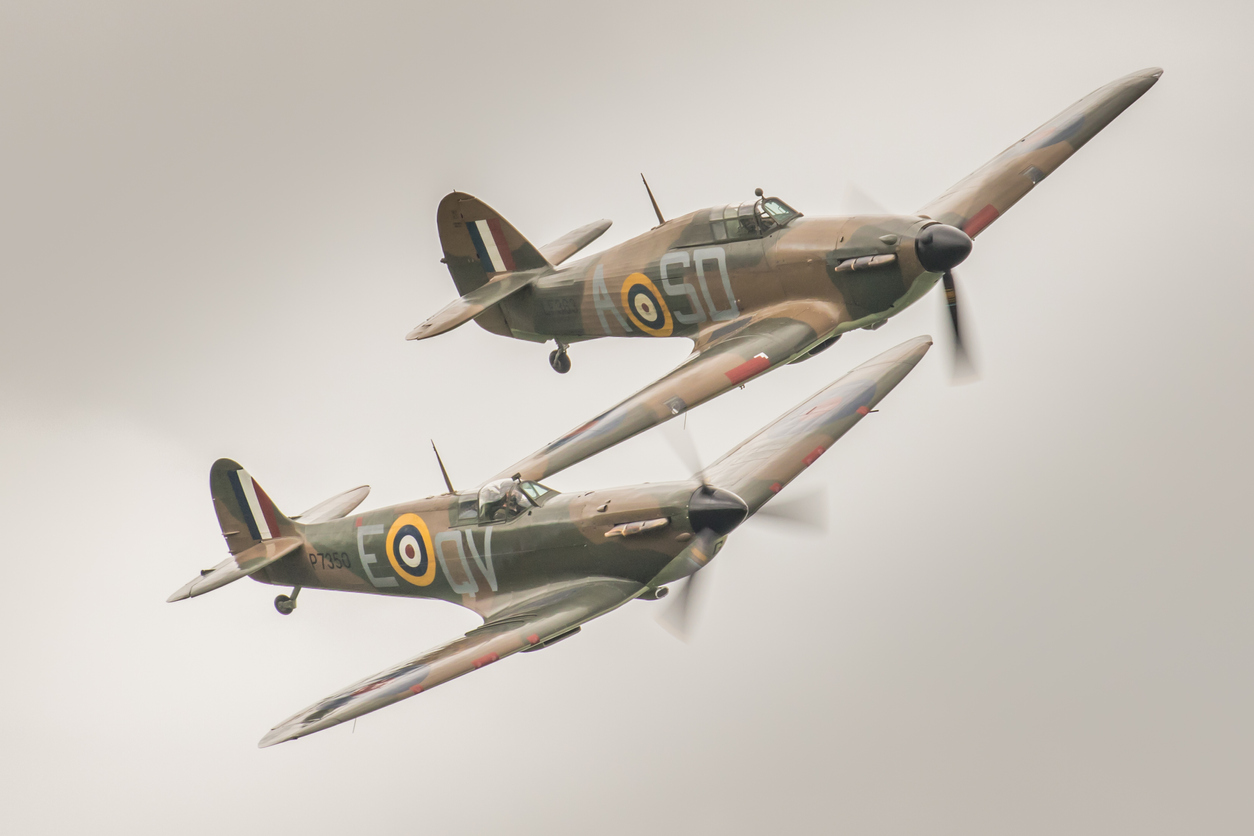Archie McInnes was one of the last remaining veterans who fought for the UK in the Battle of Britain. He passed away on July 31, 2019, just hours after celebrating his 100th birthday.
McInnes was born on July 31, 1919, and he joined the RAF volunteer reserve in 1938. He flew Hurricane warplanes with the 601 Squadron in Exeter during the World War II battle. Later, he would move to the 238 Squadron in Chilbolton, Hampshire. He completed his training when he turned 21 and was commissioned into the Royal Air Force the next day.
His biographer, Jonny Cracknell, noted earlier in the day that McInnes was one of six remaining ‘Few’ from the Battle of Britain and the last of the bunch to reach the age of 100.
It is with a heavy heart & incredible sadness to advise the tragic news that Battle of Britain hero Archie McInnes sadly passed away last night, just hours after celebrating his 100th birthday amongst friends & family. An inspiration & hero of a man – rest in peace dear Archie 💔 pic.twitter.com/AEi88AhvEi
— Jonny Cracknell (@jonnycrackers82) August 1, 2019
The airmen who fought the Nazis in the skies over Britain during the three and a half months of the Battle of Britain were called the ‘Few’ after Winston Churchill’s speech. In that speech, Churchill famously stated that, “never was so much owed by so many to so few.”
The Battle of Britain is known for being the first all-air battle in history. Though the British lost 544 RAF pilots and aircrew in that battle, the victory for the UK marked a turning point in the war. The Germans had assumed they would destroy the RAF within weeks lost 2,500 pilots and aircrew in the battle. It forced the Nazi commanders to reconsider their strategy in regards to the UK.
What the Nazis, and most of the world, had failed to recognize was that Britain had more in their favor than they assumed. Britain’s air-defense system was effective, the fighter pilots in the RAF were some of the best in the world, and Air Marshal Hugh Dowding would prove to be a great leader.
<blockquote class=”twitter-tweet”><p lang=”en” dir=”ltr”>It is with great sadness to announce the loss of another hero. Hours after his 100th birthday, Battle of Britain Veteran, Archie McInnes passed away. He was the last of the six remaining Battle of Britain ‘Few’ to become a centenarian. May he Rest In Peace. <a href=”https://t.co/1MU27L5Sic”>pic.twitter.com/1MU27L5Sic</a></p>— Royal Air Force (@RoyalAirForce) <a href=”https://twitter.com/RoyalAirForce/status/1157271325104377868?ref_src=twsrc%5Etfw”>August 2, 2019</a></blockquote> <script async src=”https://platform.twitter.com/widgets.js” charset=”utf-8″></script>
Meanwhile, the German’s had no navy after their costly defeat of Norway, no way to launch an amphibious assault with their army, and a greatly reduced air force after suffering heavy losses in previous battles.
The Germans also suffered from poor intelligence. They waited through July expecting the British to surrender. They finally began attacking in August which did extensive damage to the British radar sites. In the middle of August, the Luftwaffe changed course and began attacking RAF bases. Poor intelligence led to another change in tactics and the Germans began bombing London.
This led to a loss of morale in the German pilots as the British fighters arrived in larger-than-expected numbers and the Germans experience much heavier than expected losses. As a result, Hitler suspended the Battle of Britain.
When the Battle of Britain was over on October 31, 1940, McInnes served on the HMS Victorious. He was part of the team that hunted for Germany’s battleship, the Bismark.
Starting in April of 1941, McInnes served in the African campaign flying various missions to provide cover for bombers.
Battle of Britain pilot Archie McInnes dies hours after celebrating his 100th birthday. pic.twitter.com/PAnZciYcS6
— Downed Warbirds (@DownedWarbirds) August 2, 2019
On October 31, 1941, he was shot down by a German Messerschmidt and lost his left arm. While recovering from surgery to amputate his arm, doctors discovered that he was also suffering from typhoid and from blood poisoning. Friends worried that the 24-year-old pilot had flown his last mission.
After McInnes recovered from his injuries and ailments, he went to the workshop and fashioned himself a prosthetic arm that would allow him to work the throttle of a Hurricane fighter plane.
In 1944, he transferred to the 691 Squadron in Devon. He worked towing targets for Royal Navy gunners to practice anti-aircraft shooting.
He was released by the RAF in 1946 after attaining the rank of Flight Lieutenant. He eventually retired to live in the country outside of Cambridge.
Last year, he flew in a Spitfire. McInnes called the experience “wonderful.” He said it brought back many memories.
Another Article From Us: Searchers Find Lost Bow of WWII Submarine Near Aleutian Islands
